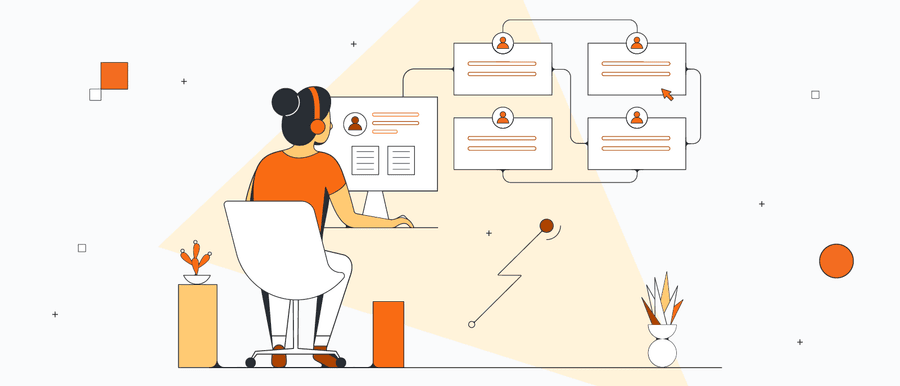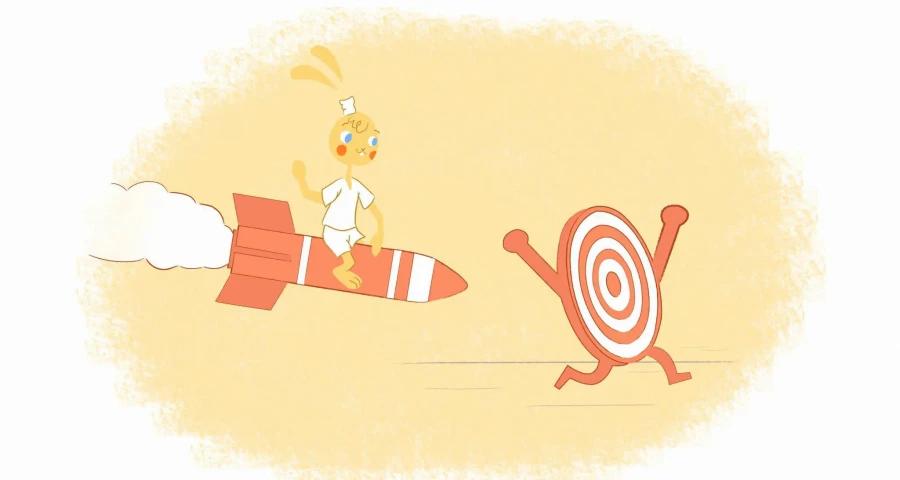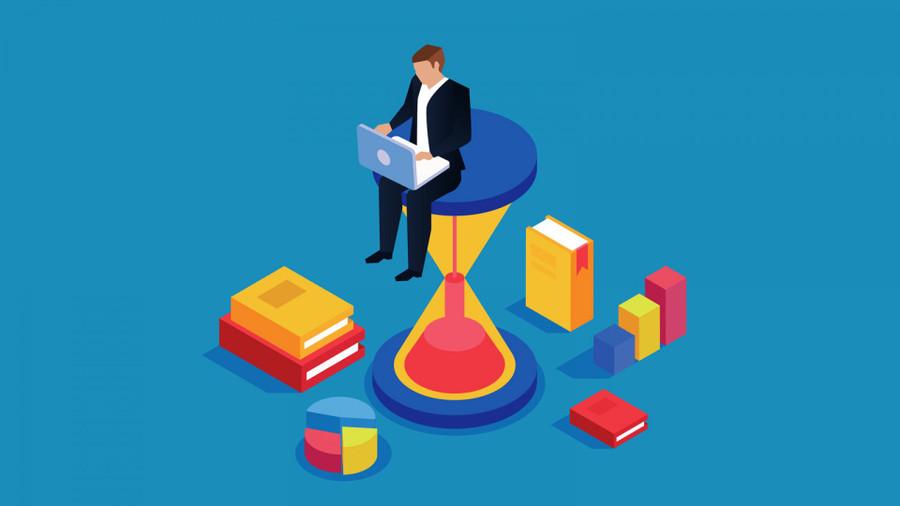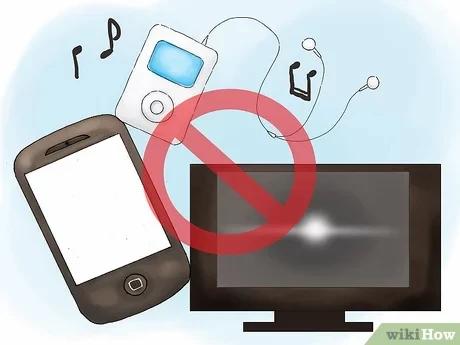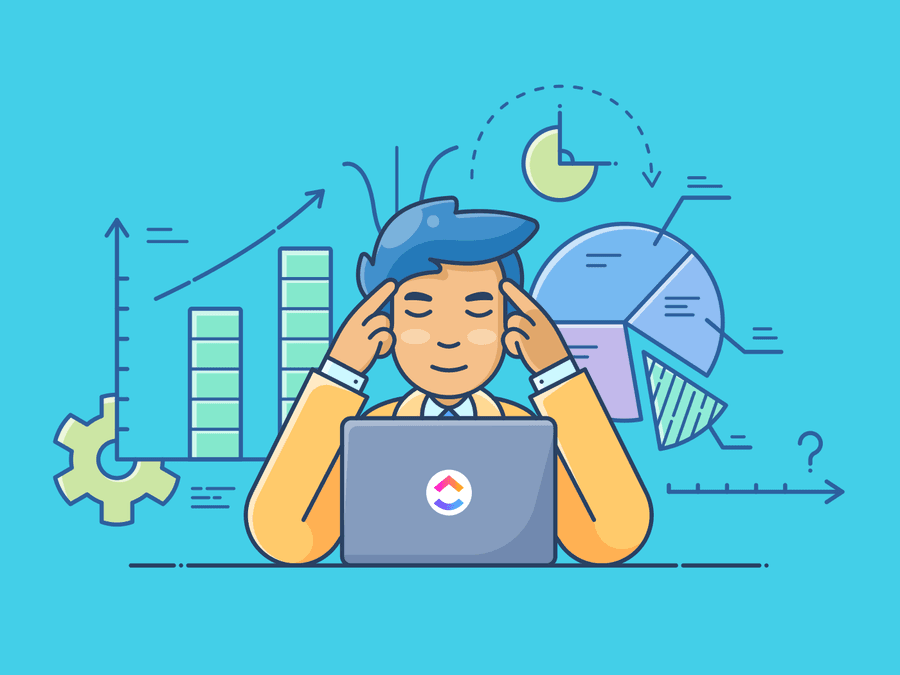11 Tips on How to Not Get Distracted
Curated from: lifehack.org
Ideas, facts & insights covering these topics:
12 ideas
·17.5K reads
134
3
Explore the World's Best Ideas
Join today and uncover 100+ curated journeys from 50+ topics. Unlock access to our mobile app with extensive features.
Distractions have a huge cost on our focus and productivity
If you want to improve or increase your focus, you need to learn to deal with the distractions in your life, and here’s how:
- Keep Your Vision and Goals in Mind
- Clarify Your Day Before You Start
- Reduce the Chaos of Your Day
- Do Those Tasks as Soon as Possible
- Focus on the Smallest Part of Your Work at a Time
- Visualize Yourself Working
- Control Your Internal Distractions
- Remove External Distractions
- Skip What You Don’t Know
- Improve Your Discipline With Focus Practice
- Manage Your Momentum
267
2.87K reads
1. Keep Your Vision and Goals in Mind
It’s important to start with a good base for your focus as you learn how to avoid distraction. This means figuring out exactly why you need to focus in the first place.
- Do you have a big presentation at work next week that you need to prepare for?
- Do you have a dream of learning to play the guitar and need to focus for an hour each day while you practice?
Deciding what your ultimate goal is will help you dedicate yourself to learning how to focus.
204
1.87K reads
2. Clarify Your Day Before You Start
In the morning, before your workday begins, dedicate a few minutes to managing your schedule.
- Have a moment to set your priorities and determine which tasks are truly vital and urgent that day;
- Which are not so urgent but still very important;
- And which you should avoid, either by delegating or eliminating them altogether.
210
1.72K reads
3. Reduce the Chaos of Your Day
If you have 20 tasks you need done every day, how effective do you think your focus ability will be?
- You need to break it down to the essentials if you want to learn how to not get distracted.
- Focus on only doing 2-3 important tasks a day, but no more than that. It’s all you need to take steps towards accomplishing your goals.
Slower is much better than giving up early because you took on too much, too soon.
219
1.52K reads
4. Do Those Tasks as Soon as Possible
In order to make sure you get those 2 to 3 tasks done, you need to do them early in order to stay focused on the task without feeling overwhelmed.
It’s tough, but waiting to do them later only invites distraction to take over. Those distractions will inevitably come in the form of unexpected emails, social media, a child that needs your attention, or coworkers who need a helping hand on their projects.
206
1.4K reads
5. Focus on the Smallest Part of Your Work at a Time
Most goals will at least take a few weeks to months to accomplish, and knowing that can make it feel like it’ll take too long to do.
This will cause you to do one of two things:
- You become discouraged because the goal is too big.
- You fantasize about what it’ll feel like to achieve the goal.
Either is terrible for your focus and always a potential problem when focusing on the big picture or using visualization. Instead, focus on doing a very small, minimum amount of work.
205
1.28K reads
6. Visualize Yourself Working
There is a proper way of using visualization, and it’s by visualizing yourself actually working.
Champion runners use this technique to great effect, usually by working backwards. They imagine themselves winning at first, and then they act out the whole process in reverse, feeling and visualizing each step all the way to the beginning.
A quicker and more relevant way to apply this would be to imagine yourself doing a small part of the task at hand.
All you need to do is apply this process to whatever it is you need to focus on.
213
1.19K reads
7. Control Your Internal Distractions
Internal distractions are one of those problems you can’t really run away from. You need to find ways to prepare your mind for work, and find simple ways to keep it from straying to non-essential thoughts in order to learn how to not get distracted.
There are a few types of internal distractions:
- Priority Chaos. One of the most common distractions we encounter is that we have too many options on hand. This can cause priority chaos.
- Short & Long Term Mismatch. Our brains are not good at evaluating and comparing short term and long term benefits.
199
1.18K reads
8. Remove External Distractions
This tip is a bit more straightforward as it requires you to simply distance yourself physically from things that are causing distractions:
- If the television is disrupting, turn it off or work in another room.
- If your kids are playing and yelling, try getting up to work before they wake up.
- If you keep checking your phone, put your phone on silent while you’re working.
- Empty the wall in front of you to keep your mind on track. Photos, prints and various knick-knacks you like to display may be cute, but they will make your mind wander.
198
1.1K reads
9. Skip What You Don’t Know
Focus your attention on what you can do to keep working “mindlessly” at all costs. All this means is that you should focus on the easy parts first.
Eventually, you can come back to the more difficult parts, and hopefully by then it’ll have come to you or you’ll have built up enough momentum that it won’t break your focus if you work on it.
200
1.11K reads
10. Improve Your Discipline With Focus Practice
There are a few focus exercises you can do to improve your overall discipline.
- The first one is meditation, which is basically the definition of focus in practice. It’s a great method for building focus ability, de-stressing, and giving you greater control over your emotions.
- The second exercise is the Pomodoro method, which asks you to set a timer to track the time you spend on a task. These are basically “focus sprints,” and each one is followed by a solid break. Like real sprints, you’ll get better and better at doing them over time.
206
1.1K reads
11. Manage Your Momentum
Momentum is like a discipline lubricant‒it helps ease the process of sticking with goals.
This means each and every day, we need to do something to further our goals (yes, even weekends and holidays). I don’t necessarily mean a big task, but rather, any task that brings us closer to our goals.
For instance:
- If your goal is to be a freelance writer, then write one single pitch on a weekend.
- If your goal is to get healthy, then go for a short, 5-minute walk, even on Christmas day.
212
1.18K reads
IDEAS CURATED BY
CURATOR'S NOTE
Don’t get distracted. Instead, use some of the tips below to win back your focus and overcome distractions. Your productivity will thank you.
“
Refresh Your Mind 's ideas are part of this journey:
Learn more about productivity with this collection
How to build a network while working remotely
How to work remotely
How to manage finances while working remotely
Related collections
Similar ideas
4 ideas
4 Reasons Why You May Be a Slow Learner
lifehack.org
5 ideas
4 ideas
5 Strategies to Grow Your Business Continuously
lifehack.org
Read & Learn
20x Faster
without
deepstash
with
deepstash
with
deepstash
Personalized microlearning
—
100+ Learning Journeys
—
Access to 200,000+ ideas
—
Access to the mobile app
—
Unlimited idea saving
—
—
Unlimited history
—
—
Unlimited listening to ideas
—
—
Downloading & offline access
—
—
Supercharge your mind with one idea per day
Enter your email and spend 1 minute every day to learn something new.
I agree to receive email updates



